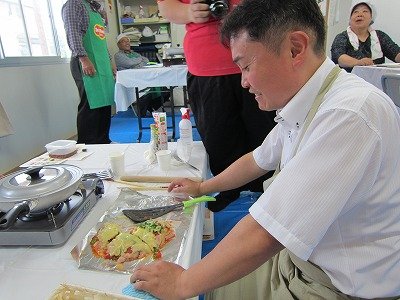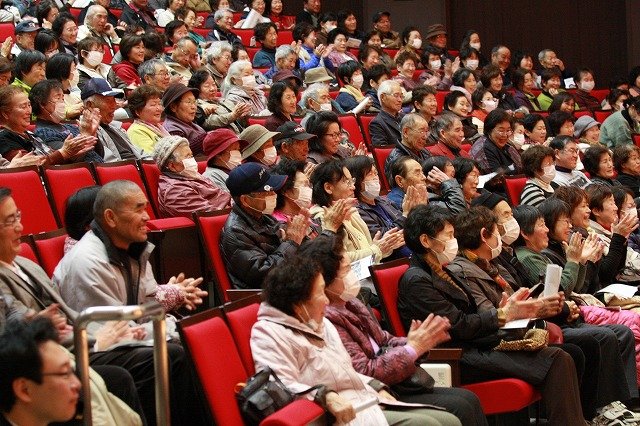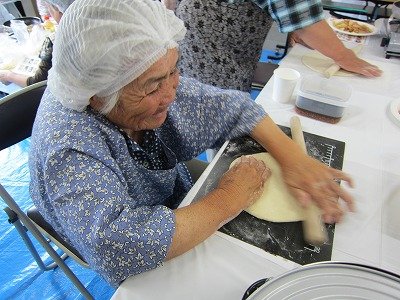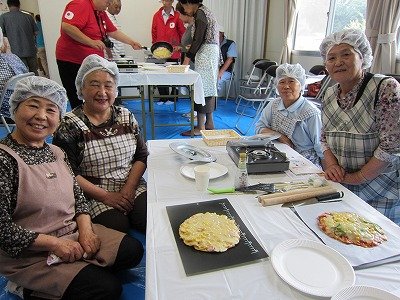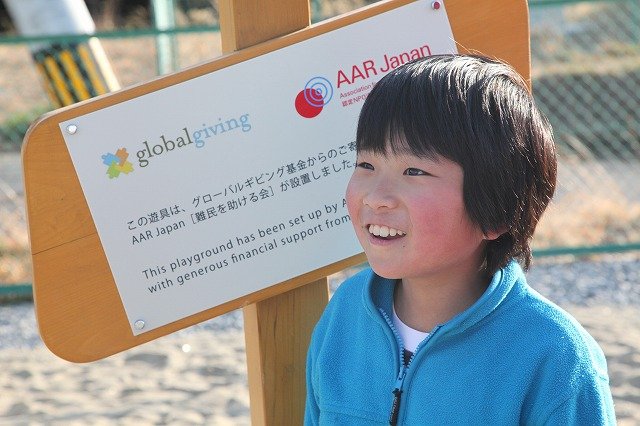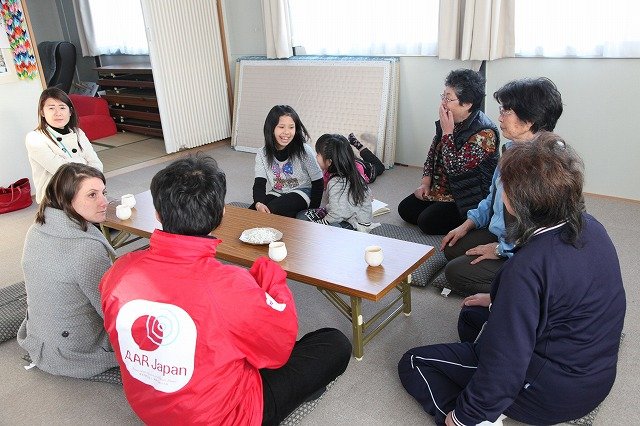By Daijo Tsuchikawa | Programme Coordinator
GlobalGiving's site visit to AAR Japan's project sites in Fukushima Prefecture
GlobalGiving’s Director of Programs, Ms. Britt LAKE visited AAR Japan’s project sites in Fukushima Prefecture on March 26th. In this report AAR Japan will introduce two of our activities from the site visit.
Minami-Soma City: Radiation Dosimeters installed at Workshops for Persons with Disabilities (PWDs)
Just over 20 km out of the Fukushima Daiichi Nuclear Power Plant lies Minami-Soma City where many evacuees from within 20 km radius came to live. In Minami-Soma City, an NGO called JIN operates a workshop named “Salad Farm”, providing training and working opportunities for PWDs. Originally JIN was located in Namie-Town, only 9 km from the Fukushima Daiichi Nuclear Power Plant, but due to the high radiation contamination JIN along with many of its former employees evacuated to Minami-Soma City.
It is the 2nd year for JIN’s staff members to cultivate their farm land. This land was originally covered by bushes and nothing was grown. The staff members spent 2 years clearing the bushes and cultivating the land in addition to building few green houses to protect the land from radiation. Now they are able to harvest several types of vegetables including potatoes, carrots and cabbages for sale.
To promote sales of their products, with the help of GlobalGiving, AAR Japan installed a radiation dosimeter at Salad Farm so that they can measure the contamination level of the harvested vegetables. People in Fukushima Prefecture are still exposed to radiation on a daily basis; and in order to ensure steady sales of crops, thereby securing the income for the PWDs at Salad Farm, it is crucial to show that Salad Farm’s products are safe for consumption.
Shinchi Town: Playground Equipment at Temporary Housing Complexes
After visiting Salad Farm, Ms. Britt and AAR staff members moved on to Suzumezuka Temporary Housing Complex and Shinbayashi Temporary Housing Complex both in Shichi Town, Fukushima Prefecture, approximately 50 km from the Fukushima Daiichi Nuclear Power Plant. In both temporary housing complexes, AAR Japan had installed playground equipment in cooperation with GlobalGiving.
After the March 11th 2011 disaster, majority of schools in Fukushima Prefecture restricted outdoor activities including Physical Education classes. The consequence was astonishing. According to the result of the 2012 health check up conducted by Ministry of Education, Culture, Sports, Science and Technology at all the public schools in Japan, children in Fukushima had the highest rate of obesity for nearly all age groups while children aged 5 through 11 were in serious situation. Children of 5, 6, and 8 years old have twice as much risk of being overweight as the country’s average while for those aged 5-9, 14, and 17, children in Fukushima recorded the highest percentage of obesity in the nation.
To alleviate the effect of restricted outdoor activities at schools and to improve the health condition of children in temporary housings, we installed the playground equipment. We believe small help such as installation of playground equipment can make a big difference for small children to be physically active to have healthier life in future.
Besides the two activities reported above, we are currently implementing providing safe drinking water to kindergartens and nurseries in Fukushima, and we are also holding community gathering events periodically. All these activities are supported by generous donations that we receive from GlobalGiving. We appreciate every bit of help we receive.
Project reports on GlobalGiving are posted directly to globalgiving.org by Project Leaders as they are completed, generally every 3-4 months. To protect the integrity of these documents, GlobalGiving does not alter them; therefore you may find some language or formatting issues.
If you donate to this project or have donated to this project, you can receive an email when this project posts a report. You can also subscribe for reports without donating.
